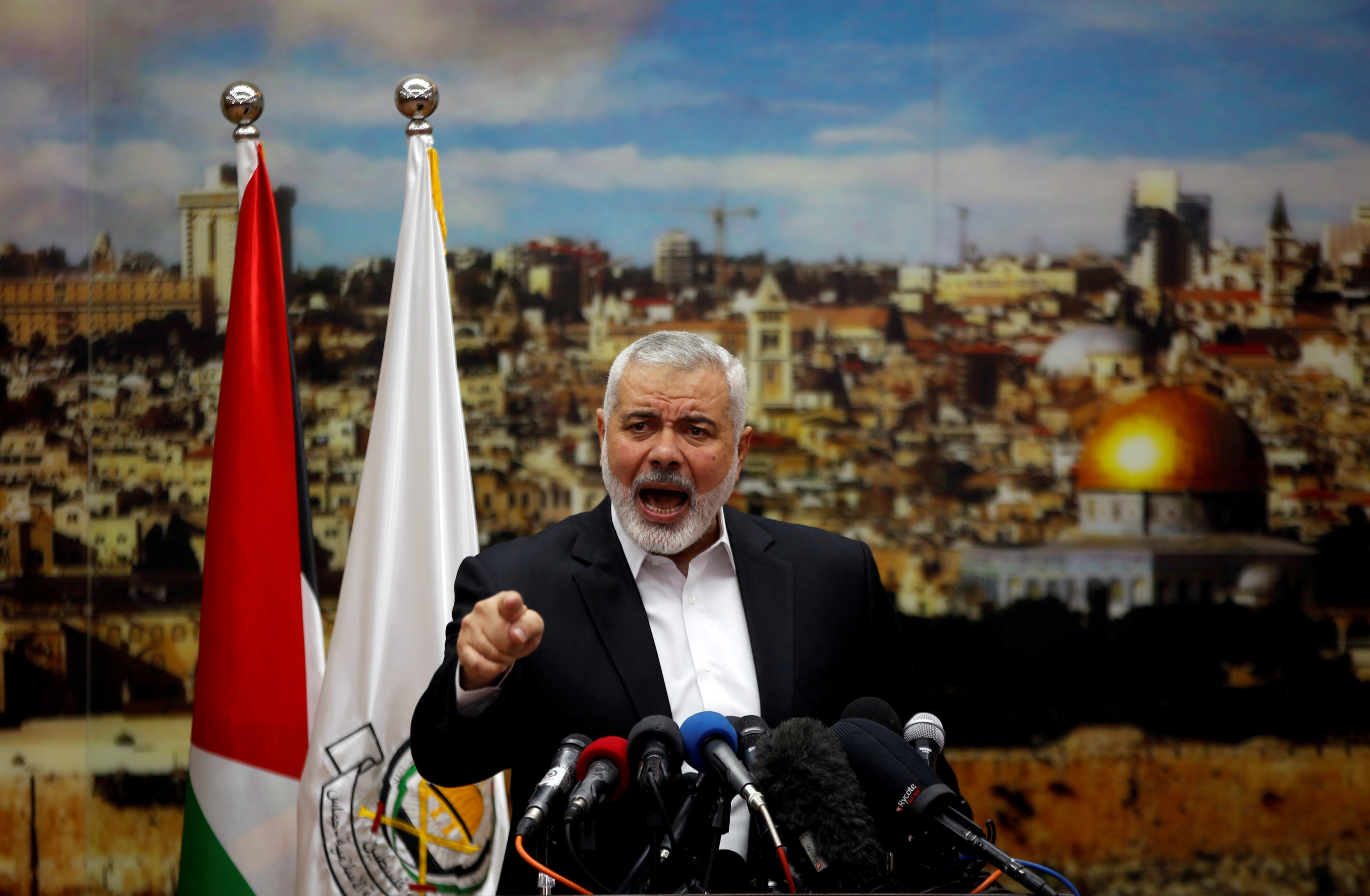 FILE PHOTO: Hamas Chief Ismail Haniyeh gestures as he delivers a speech over U.S. President Donald Trump’s decision to recognize Jerusalem as the capital of Israel, in Gaza City December 7, 2017. REUTERS/Mohammed Salem/File Photo
FILE PHOTO: Hamas Chief Ismail Haniyeh gestures as he delivers a speech over U.S. President Donald Trump’s decision to recognize Jerusalem as the capital of Israel, in Gaza City December 7, 2017. REUTERS/Mohammed Salem/File Photo The impoverished Gaza Strip is said to be plagued by a burgeoning humanitarian crisis, causing speculation that Israel will have to intervene or that it could cause another armed conflict between Israel and Hamas. Do Israelis and Gazans need to worry about another conflict, or is this a smokescreen by Hamas and its enablers?
Here are five things to know about the humanitarian crisis in Gaza.
1. Gazans are mired in poverty and suffer from a lack of proper infrastructure. Israeli Defense Force (IDF) Chief of Staff Gadi Eisenkot briefed ministers in the Israeli government that Gaza lacks “electricity, drinkable water, and food” and it’s only getting worse. The Independent reported in August that Gaza’s unemployment rate was 41%, 96% of the water unpotable and that each day Gazans only have around three hours of power.
2. Eisenkot is suggesting that Israel provide aid to Gazans. Eisenkot argued that Gaza’s deteriorating economic conditions could inflame Hamas into starting another armed conflict. Hamas is already telling its people that Israel is planning on striking Gaza when they start conducting joint military activities with the United States Army.
3. However, it doesn’t seem like Israel will be providing any aid to Gaza. Defense Minister Avigdor Liberman said in the Knesset that while things are “difficult” in Gaza, there was “no humanitarian crisis.”
“We will not spend a penny from the Israeli budget,” said Liberman. “I refuse to allow any penny of Israeli tax money to go to the Strip. There are enough wealthy Arab countries.”
Liberman added that Hamas first needs to return the bodies of captured Israeli soldiers before Israel spends any further money on Gaza and stated that the Jewish state has no plans to start another armed conflict with Hamas.
4. Hamas is scapegoating Israel and the Palestinian Authority (PA) for Gaza’s economic woes. The rationale blames Israel for their decade-long blockade of Gaza and for their prior strikes on Gaza. The PA is blamed for leveling economic sanctions against Gaza, as Fatah and Hamas have long been rivals and recent attempts at forming a unity government have been stalled.
However, the Anti-Defamation League (ADL) points out on their website that Israel already provides Gaza with “food, medicine and medical equipment, building materials and other assorted items” in addition to electricity, meaning that Hamas has no one to blame but themselves for the decrepit state of the Gazan economy.
“Its refusal to comply with international demands to recognize Israel’s right to exist and cease terrorist operations has led to the isolation of Gaza by the international community,” the ADL argues. “It deliberately puts ordinary Palestinians in harm’s way by misusing domestic items for military purposes, establishing its terrorist infrastructure – manufacturing, storage, training and strategic planning – within densely populated areas, in the midst of homes, schools, mosques and hospitals. It has cynically exploited the harsh conditions in Gaza for public relations purposes, while continuing to expand the hostile activities that created and exacerbated these conditions.”
Additionally, Liberman argued in the Knesset that Hamas isn’t interested in investing in the country’s infrastructure, as they spent $260 million on rockets and tunnels and their leadership has no issues with electricity.
5. Various reports are implying that the Trump administration’s decision to cut money from the United Nations for Relief and Works Agency (UNRWA) will worsen the situation in Gaza. However, the UNRWA has been described by its critics as essentially being a Palestinian refugee welfare program and reportedly has teachers who post anti-Semitic material.























 More news and opinions than at a Shabbat dinner, right in your inbox.
More news and opinions than at a Shabbat dinner, right in your inbox.